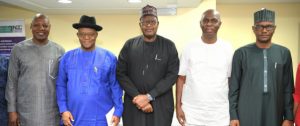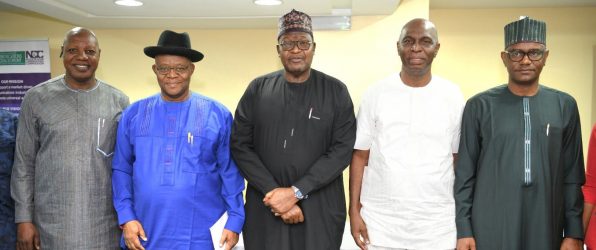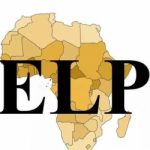Investment profile in Nigeria’s telecommunications sector, made up of local and Foreign Diirect Investment (FDI), has risen to $75.6 billion as at 2021.
The Executive Vice Chairman (EVC) of the Nigerian Communications Commission (NCC), Prof Umar Garba Danbatta, disclosed this at an interactive session with stakeholders in the communications media ecosystem, in Lagos on Wednesday.
At the forum, He laid bare his scorecards and landmark developments that have shaped the trajectory of growth in the telecoms sector since he became the chief telecom regulator in August 2015.
According to Prof Danbatta, in 2018, investment profile in the sector stood at $68 billion which later increased to $70.5 billion in 2019 and $72 billion in 2020.
At the end of 2021, the figure rose to $75,560,563,417.79 ($75.6 billion) which is the current official investment profile computed in the industry, up from the initial $70 billion investment in the last few years.
Investment in the telecommunications sector in Nigeria is computed from two sources: the Central Bank of Nigeria (CBN), and the financial data obtained from service providers by the Commission.
While the CBN collects and calculates an element of the telecoms sector to include FDI, portfolio and others, the Commission collects investment figures from telecom licensees.
The amount is described as domestic investment arising from capital expenditure (CAPEX) which form part of the total investment in the industry.
The NCC boss said through effective regulatory environment put in place by the Commission, the telecom sector has recorded tremendous growth from an initial investment profile of $500 million as at 2001, when the sector was fully liberalised.
Similarly, Danbatta said the telecom sector has continued to be a major contributor to the Nigeria’s economy with an impressive sectoral contribution to the nation’s GDP quarterly, up from about 8.5 per cent in third quarter of 2015.
Citing data from the National Bureau of Statistics (NBS), Danbatta said the telecoms sector contributed N10.126 trillion as an aggregate quarterly contribution to GDP in 2022.
“In the first quarter, the sector contributed 12.94 per cent equivalent to N2.246 trillion while the second quarter witnessed an all-time high GDP contribution by the telecom sector to the nation’s economy, standing at 15 per cent and valued at N2.593 trillion.
The sector’s contribution to GDP in the third was 12.85 per cent and in the fourth quarter, it grew to 13.55 per cent, which are valued at N2.436 trillion and N2.851 trillion respectively.
“The growth trajectory continued this year as telecommunications and Information Services sector in Nigeria delivered a handsome N2. 508 trillion in terms of financial value contribution to the nation’s gross domestic product, GDP, representing 14.13% in the first quarter 2023,”he said.
Telecoms contribution to national GDP has grown significantly since assumption of Prof. Danbatta as the EVC of NCC in August, 2015, according to available data from NBS.
From 8.50 per cent in 2015, it grew to 9.13 per cent in 2016 and to 8.66 per cent in 2017. In the last quarter of 2018, telecoms contributed 9.85 per cent to national GDP while it added 10.60 per cent in the fourth quarter of 2019.
Also in the second quarter of 2010, it added 14.30 per cent to GDP; 14.42 per cent in the second quarter of 2021. The highest quarterly contribution to GDP by the sector to the economy was 15 per cent in the second quarter of 2022.
Overall, Danbatta said the sector has become a major enabler of economic development in Nigeria, as it continues to positively impact all the facets of the Nigerian economy.
“As the regulatory authority for the telecom sector in Nigeria, we are happy that the sector has recorded phenomenal growth statistics in the past two decades of the liberalization of the telecoms sector.
“However, we will not rest on our oars. We will continue to push upward to greater heights by encouraging expansion of frontiers to put Nigeria’s imprint on the global map of digital economy,” he said.
In addition to the growth in investment and GDP contribution, Danbatta said, “As of May, 2023, active voice subscriptions reached 221.3 million, equivalent of 115.91 per cent teledensity, while Internet subscriptions rose to 159.6 million.”
According to the CEO of NCC, broadband subscriptions on Third Generation (3G) and Fourth Generation (4G) networks increased to 92.2 million, representing a 48.28 per cent broadband penetration in the country.
Also, following the issuance of 3.5GHz spectrum licences for the deployment of Fifth Generation (5G) networks in Nigeria, marked by ultra-high speed internet, low latency and high capacity, and the subsequent commercial launch by two of the three licence holders, 5G subscriptions have grown to over 60,000 in many cities in at least 12 states of the Federation.
Danbatta assured of the Commission’s commitment to always give concrete expression to the Federal Government Executive Order 001 focused on Ease of Doing Business and other digital economy-oriented policies, by embarking on various regulatory initiatives that support a friendly investment climate for investors in Nigeria and enhance value for money for telecom consumers.

The EVC particularly commended the media as a strategic partner and enabler of growth in the telecom sector “through accurate, adequate and timely reporting of all regulatory activities of the Commission.”









Comment here